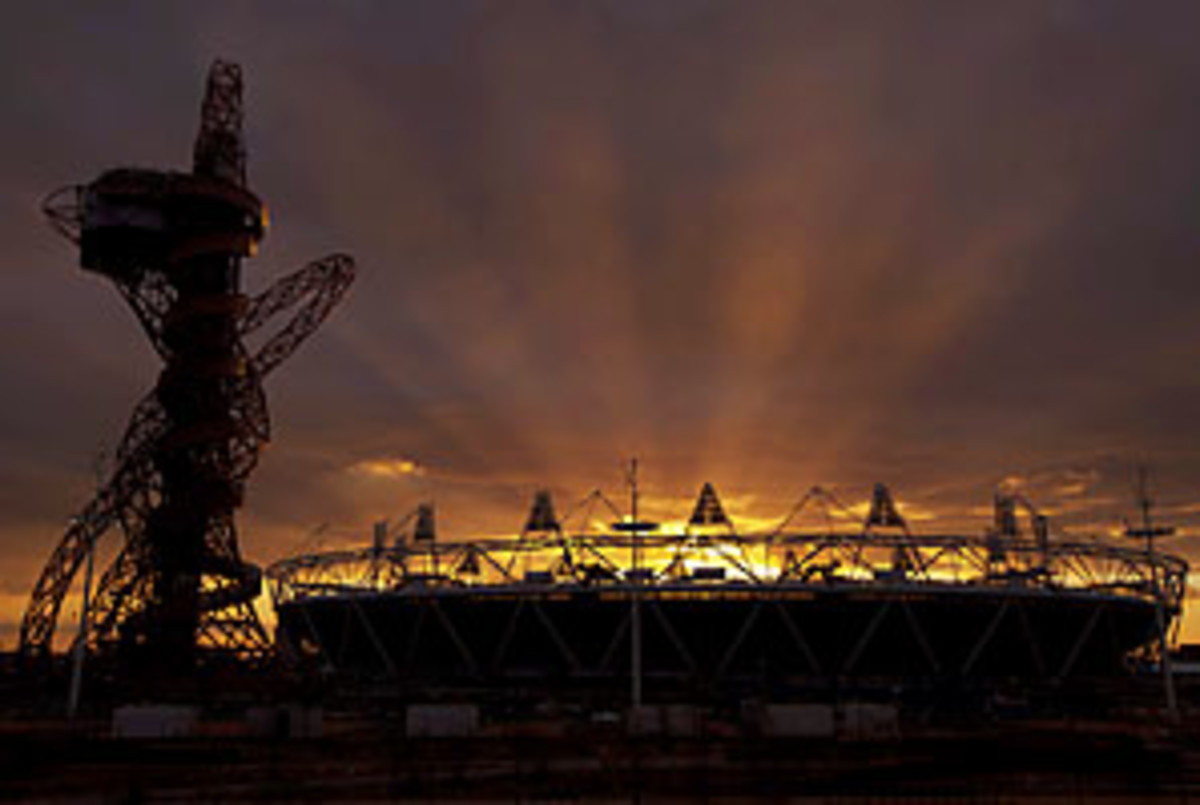West Ham chosen to finalize Olympic Stadium deal
LONDON (Reuters) -- West Ham United face more hard bargaining if the English Premier League soccer club are to fulfill their ambition of moving to a new 60,000-seater home in London's Olympic Stadium.
The promoted club were named on Wednesday as the leading bidders to become anchor tenants in the stadium, but London mayor Boris Johnson warned that a "Plan B" was being developed in case a deal could not be finalized.
Finding a tenant who can regularly draw big crowds to the stadium in east London is seen as vital to ensuring the area gains lasting benefits from the billions of pounds invested in it before the Games. However, the process seems to have been going around in circles for the past couple of years.
West Ham were named as preferred bidders to take over the stadium in February 2011, but that deal collapsed because of legal wrangling. A new agreement would leave the 430 million pounds stadium in public ownership but grant the soccer club a 99-year lease.
West Ham want to install retractable seating over the athletics track and add the features of a modern soccer stadium including executive boxes. The venue would probably not be ready for use until the 2016-17 season.
The stumbling blocks to any deal are how to divide up the costs of the conversion - estimated at up to 150 million pounds - and ensuring taxpayers stand to benefit from any increase in the value of the club following the move.
English champions Manchester City play in the stadium built for the 2002 Commonwealth Games and have prospered after being bought by Abu Dhabi's Sheikh Mansour Bin Zayed Al Nahyan.
"I hope the detailed negotiations with West Ham can succeed," Johnson said.
"But I am determined that any deal should protect the interests of taxpayers who have paid for the stadium and would have to pay more for adaptations to make it suitable for football," he added.
While soccer is the preferred option, Johnson was careful to stress that the London Legacy Development Corporation (LLDC) he chairs would not do a deal with West Ham at any price.
"I can see a great future for the stadium with or without association football," he said, refusing to set a deadline for agreement with West Ham.
The LLDC said it was planning to hire a stadium operator to manage the venue and put on concerts and other sporting events, irrespective of whether West Ham moved in or not.
Keen to avoid the portrayal of the stadium as a white elephant, the LLDC said it was looking at reopening it for events in the summer of 2013 before conversion work begins.
London will stage the world athletics championships at the venue in 2017.
The Olympic Stadium is also on the list of potential venues to host matches during the 2015 rugby World Cup but is unlikely to be ready in time should the West Ham deal proceed.
West Ham have played at the Boleyn Ground, often referred to as Upton Park, in east London since 1904. The stadium is one of the most atmospheric in the top flight but can only accommodate about 35,000 fans.
West Ham owners David Sullivan and David Gold said a move would help to establish the club as a force in the Premier League and played down fears they could try to sell up.
"We are dedicated to West Ham United and the stadium for the long haul," co-chairmen Sullivan and Gold said in a statement.
"We are now committed to working with the LLDC in full consultation with our supporters to finalise our plans to make the stadium our home."






